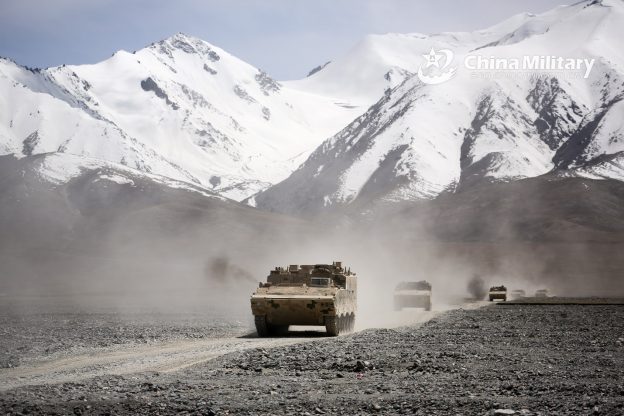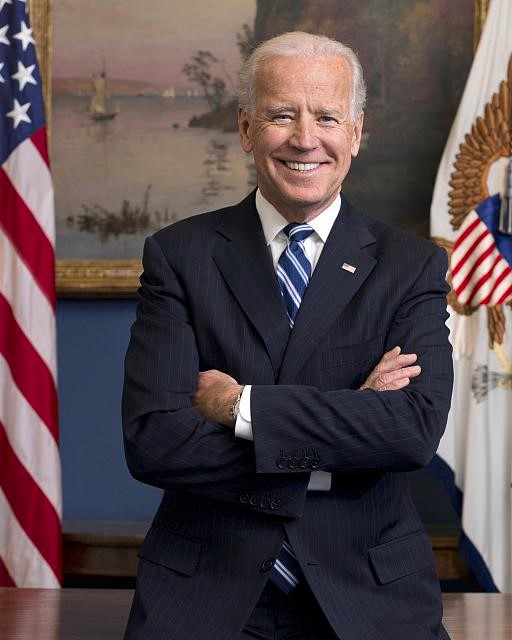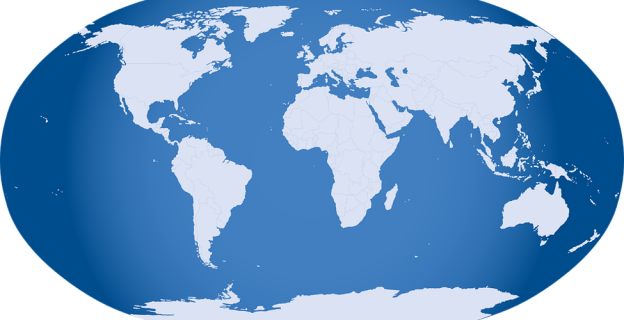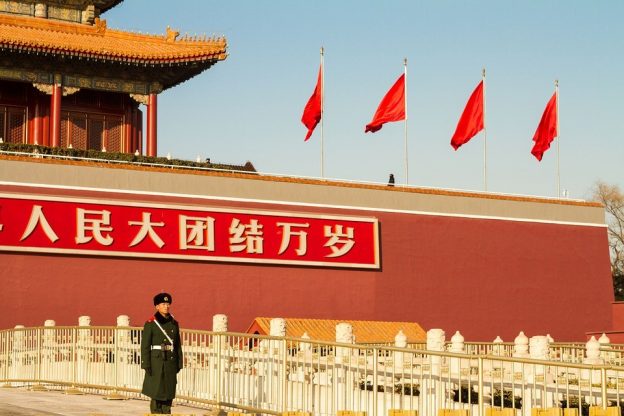The White House has released a comprehensive examination of the strategic relationship with China. The New York Analysis of Policy and Government presents, in three parts, the complete document. Today’s portion examines the challenges facing the U.S. from China’s growing threat.
Challenges
The PRC today poses numerous challenges to United States national interests.
- Economic Challenges
Beijing’s poor record of following through on economic reform commitments and its extensive use of state-driven protectionist policies and practices harm United States companies and workers, distort global markets, violate international norms, and pollute the environment. When the PRC acceded to the World Trade Organization (WTO) in 2001, Beijing agreed to embrace the WTO’s open market-oriented approach and embed these principles in its trading system and institutions. WTO members expected China to continue on its path of economic reform and transform itself into a market-oriented economy and trade regime.
These hopes were not realized. Beijing did not internalize the norms and practices of competition-based trade and investment, and instead exploited the benefits of WTO membership to become the world’s largest exporter, while systematically protecting its domestic markets. Beijing’s economic policies have led to massive industrial overcapacity that distorts global prices and allows China to expand global market share at the expense of competitors operating without the unfair advantages that Beijing provides to its firms. The PRC retains its non-market economic structure and state-led, mercantilist approach to trade and investment. Political reforms have likewise atrophied and gone into reverse, and distinctions between the government and the party are eroding. General Secretary Xi’s decision to remove presidential term limits, effectively extending his tenure indefinitely, epitomized these trends.
In his 2018 Findings of the Investigation into China’s Acts, Policies, and Practices Related to Technology Transfer, Intellectual Property, and Innovation under Section 301 of the Trade Act of 1974, the United States Trade Representative (USTR) determined that numerous acts, policies, and practices of the PRC government were unreasonable or discriminatory, and burden or restrict United States commerce. Based on a rigorous investigation, USTR found that the PRC: (1) requires or pressures United States companies to transfer their technology to Chinese entities; (2) places substantial restrictions on United States companies’ ability to license their technology on market terms; (3) directs and unfairly facilitates acquisition of United States companies and assets by domestic firms to obtain cutting edge technologies; and (4) conducts and supports unauthorized cyber intrusions into United States companies’ networks to access sensitive information and trade secrets.
The list of Beijing’s commitments to cease its predatory economic practices is littered with broken and empty promises. In 2015, Beijing promised that it would stop governmentdirected cyber-enabled theft of trade secrets for commercial gain, reiterating that same promise in 2017 and 2018. Later in 2018, the United States and a dozen other countries attributed global computer intrusion campaigns, targeting intellectual property and confidential business information, to operators affiliated with the PRC’s Ministry of State Security – a contravention of Beijing’s 2015 commitment. Since the 1980s, Beijing has signed multiple international agreements to protect intellectual property. Despite this, more than 63 percent of the world’s counterfeits originate in China, inflicting hundreds of billions of dollars of damage on legitimate businesses around the world.
While Beijing acknowledges that China is now a “mature economy,” the PRC continues to argue in its dealings with international bodies, including the WTO, that it is still a “developing country.” Despite being the top importer of high technology products and ranking second only to the United States in terms of gross domestic product, defense spending, and outward investment, China self-designates as a developing country to justify policies and practices that systematically distort multiple sectors globally, harming the United States and other countries.
One Belt One Road (OBOR) is Beijing’s umbrella term to describe a variety of initiatives, many of which appear designed to reshape international norms, standards, and networks to advance Beijing’s global interests and vision, while also serving China’s domestic economic requirements. Through OBOR and other initiatives, the PRC is expanding the use of Chinese industrial standards in key technology sectors, part of an effort to strengthen its own companies’ position in the global marketplace at the expense of non-Chinese firms. Projects that Beijing has labeled OBOR include: transportation, information and communications technology and energy infrastructure; industrial parks; media collaboration; science and technology exchanges; programs on culture and religion; and even military and security cooperation. Beijing is also seeking to arbitrate OBOR-related commercial disputes through its own specialized courts, which answer to the CCP. The United States welcomes contributions by China to sustainable, high-quality development that accords with international best practices, but OBOR projects frequently operate well outside of these standards and are characterized by poor quality, corruption, environmental degradation, a lack of public oversight or community involvement, opaque loans, and contracts generating or exacerbating governance and fiscal problems in host nations.
Given Beijing’s increasing use of economic leverage to extract political concessions from or exact retribution against other countries, the United States judges that Beijing will attempt to convert OBOR projects into undue political influence and military access. Beijing uses a combination of threat and inducement to pressure governments, elites, corporations, think tanks, and others – often in an opaque manner – to toe the CCP line and censor free expression. Beijing has restricted trade and tourism with Australia, Canada, South Korea, Japan, Norway, the Philippines, and others, and has detained Canadian citizens, in an effort to interfere in these countries’ internal political and judicial processes. After the Dalai Lama visited Mongolia in 2016, the PRC government imposed new tariffs on land-locked Mongolia’s mineral exports passing through China, temporarily paralyzing Mongolia’s economy.
Beijing seeks global recognition for its environmental efforts and claims to promote “green development.” China, however, has been the world’s largest greenhouse gas emitter by a wide margin for more than a decade. Beijing has put forward vague and unenforceable emissions reduction commitments that allow China’s emissions to keep growing until “around 2030.” China’s planned growing emissions will outweigh the reductions from the rest of the world combined. Chinese firms also export polluting coal-fired power plants to developing countries by the hundreds. The PRC is also the world’s largest source of marine plastic pollution, discharging over 3.5 million metric tons into the ocean each year. The PRC ranks first in the world for illegal, unreported, and unregulated fishing in coastal nations’ waters around the world, threatening local economies and harming the marine environment. Chinese leaders’ unwillingness to rein in these globally harmful practices does not match their rhetorical promises of environmental stewardship.
- Challenges to Our Values
The CCP promotes globally a value proposition that challenges the bedrock American belief in the unalienable right of every person to life, liberty, and the pursuit of happiness. Under the current generation of leadership, the CCP has accelerated its efforts to portray its governance system as functioning better than those of what it refers to as “developed, western countries.” Beijing is clear that it sees itself as engaged in an ideological competition with the West. In 2013, General Secretary Xi called on the CCP to prepare for a “long-term period of cooperation and conflict” between two competing systems and declared that “capitalism is bound to die out and socialism is bound to win.”
The CCP aims to make China a “global leader in terms of comprehensive national power and international influence,” as General Secretary Xi expressed in 2017, by strengthening what it refers to as “the system of socialism with Chinese characteristics.” This system is rooted in Beijing’s interpretation of Marxist-Leninist ideology and combines a nationalistic, singleparty dictatorship; a state-directed economy; deployment of science and technology in the service of the state; and the subordination of individual rights to serve CCP ends. This runs counter to principles shared by the United States and many likeminded countries of representative government, free enterprise, and the inherent dignity and worth of every individual.
Internationally, the CCP promotes General Secretary Xi’s vision for global governance under the banner of “building a community of common destiny for mankind.” Beijing’s efforts to compel ideological conformity at home, however, present an unsettling picture of what a CCP-led “community” looks like in practice: (1) an anticorruption campaign that has purged political opposition; (2) unjust prosecutions of bloggers, activists, and lawyers; (3) algorithmically determined arrests of ethnic and religious minorities; (4) stringent controls over and censorship of information, media, universities, businesses, and non-governmental organizations; (5) surveillance and social credit scoring of citizens, corporations, and organizations; and (6) and arbitrary detention, torture, and abuse of people perceived to be dissidents. In a stark example of domestic conformity, local officials publicized a book burning event at a community library to demonstrate their ideological alignment to “Xi Jinping Thought.”
One disastrous outgrowth of such an approach to governance is Beijing’s policies in Xinjiang, where since 2017, authorities have detained more than a million Uighurs and members of other ethnic and religious minority groups in indoctrination camps, where many endure forced labor, ideological indoctrination, and physical and psychological abuse. Outside these camps, the regime has instituted a police state employing emerging technologies such as artificial intelligence and biogenetics to monitor ethnic minorities’ activities to ensure allegiance to the CCP. Widespread religious persecution – of Christians, Tibetan Buddhists, Muslims, and members of Falun Gong – includes the demolition and desecration of places of worship, arrests of peaceful believers, forced renunciations of faith, and prohibitions on raising children in traditions of faith.
The CCP’s campaign to compel ideological conformity does not stop at China’s borders. In recent years, Beijing has intervened in sovereign nations’ internal affairs to engineer consent for its policies. PRC authorities have attempted to extend CCP influence over discourse and behavior around the world, with recent examples including companies and sports teams in the United States and the United Kingdom and politicians in Australia and Europe. PRC actors are exporting the tools of the CCP’s techno-authoritarian model to countries around the world, enabling authoritarian states to exert control over their citizens and surveil opposition, training foreign partners in propaganda and censorship techniques, and using bulk data collection to shape public sentiment.
China’s party-state controls the world’s most heavily resourced set of propaganda tools. Beijing communicates its narrative through state-run television, print, radio, and online organizations whose presence is proliferating in the United States and around the world. The CCP often conceals its investments in foreign media entities. In 2015, China Radio International was revealed to control 33 radio stations in 14 countries via shell entities, and to subsidize multiple intermediaries through providing free, pro-Beijing content.
Beyond the media, the CCP uses a range of actors to advance its interests in the United States and other open democracies. CCP United Front organizations and agents target businesses, universities, think tanks, scholars, journalists, and local, state, and Federal officials in the United States and around the world, attempting to influence discourse and restrict external influence inside the PRC.
Beijing regularly attempts to compel or persuade Chinese nationals and others to undertake a range of malign behaviors that threaten United States national and economic security, and undermine academic freedom and the integrity of the United States research and development enterprise. These behaviors include misappropriation of technology and intellectual property, failure to appropriately disclose relationships with foreign government sponsored entities, breaches of contract and confidentiality, and manipulation of processes for fair and merit-based allocation of Federal research and development funding. Beijing also attempts to compel Chinese nationals to report on and threaten fellow Chinese students, protest against events that run counter to Beijing’s political narrative, and otherwise restrict the academic freedom that is the hallmark and strength of the American education system.
PRC media entities, journalists, academics, and diplomats are free to operate in the United States, but Beijing denies reciprocal access to American counterpart institutions and officials. The PRC government routinely denies United States officials, including the United States Ambassador to the PRC, access to Department of State-funded American Cultural Centers, which are hosted in Chinese universities to share American culture with the Chinese people. Foreign reporters working in the PRC often face harassment and intimidation.
- Security Challenges
As China has grown in strength, so has the willingness and capacity of the CCP to employ intimidation and coercion in its attempts to eliminate perceived threats to its interests and advance its strategic objectives globally. Beijing’s actions belie Chinese leaders’ proclamations that they oppose the threat or use of force, do not intervene in other countries’ internal affairs, or are committed to resolving disputes through peaceful dialogue. Beijing contradicts its rhetoric and flouts its commitments to its neighbors by engaging in provocative and coercive military and paramilitary activities in the Yellow Sea, the East and South China Seas, the Taiwan Strait, and Sino-Indian border areas.
In May 2019, the Department of Defense issued its annual report to the Congress, Military and Security Developments Involving the PRC, assessing current and future trajectories of China’s military-technological development, security and military strategies, and People’s Liberation Army (PLA) organizational and operational concepts. In July 2019, the PRC Minister of Defense publicly acknowledged that OBOR is linked to the PRC’s aspirational expansion of PLA presence overseas, including locations such as the Pacific Islands and the Caribbean.
Beijing’s military buildup threatens United States and allied national security interests and poses complex challenges for global commerce and supply chains. Beijing’s Military-Civil Fusion (MCF) strategy gives the PLA unfettered access into civil entities developing and acquiring advanced technologies, including state-owned and private firms, universities, and research programs. Through non-transparent MCF linkages, United States and other foreign companies are unwittingly feeding dual-use technologies into PRC military research and development programs, strengthening the CCP’s coercive ability to suppress domestic opposition and threaten foreign countries, including United States allies and partners.
The PRC’s attempts to dominate the global information and communications technology industry through unfair practices is reflected in discriminatory regulations like the PRC National Cyber Security Law, which requires companies to comply with Chinese data localization measures that enable CCP access to foreign data. Other PRC laws compel companies like Huawei and ZTE to cooperate with Chinese security services, even when they do business abroad, creating security vulnerabilities for foreign countries and enterprises utilizing Chinese vendors’ equipment and services.
The PRC’s attempts to dominate the global information and communications technology industry through unfair practices is reflected in discriminatory regulations like the PRC National Cyber Security Law, which requires companies to comply with Chinese data localization measures that enable CCP access to foreign data. Other PRC laws compel companies like Huawei and ZTE to cooperate with Chinese security services, even when they do business abroad, creating security vulnerabilities for foreign countries and enterprises utilizing Chinese vendors’ equipment and services.
The Report concludes tomorrow.
Photo: PLA Heavy Armor (eng.chinamil.com.cn/)








